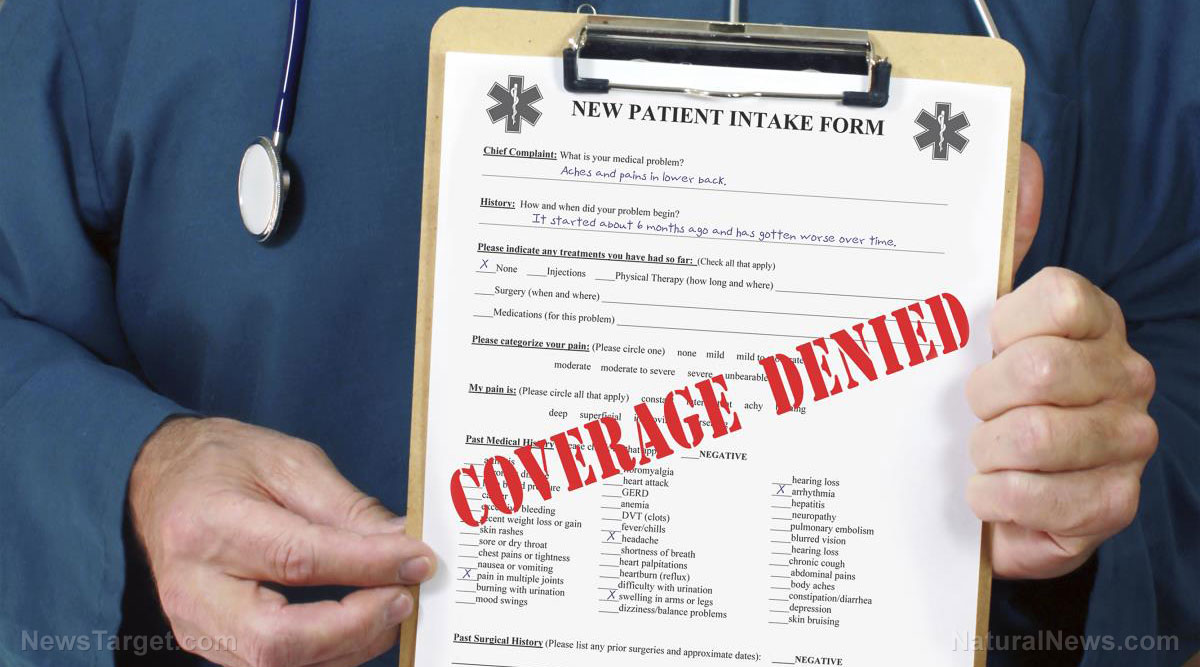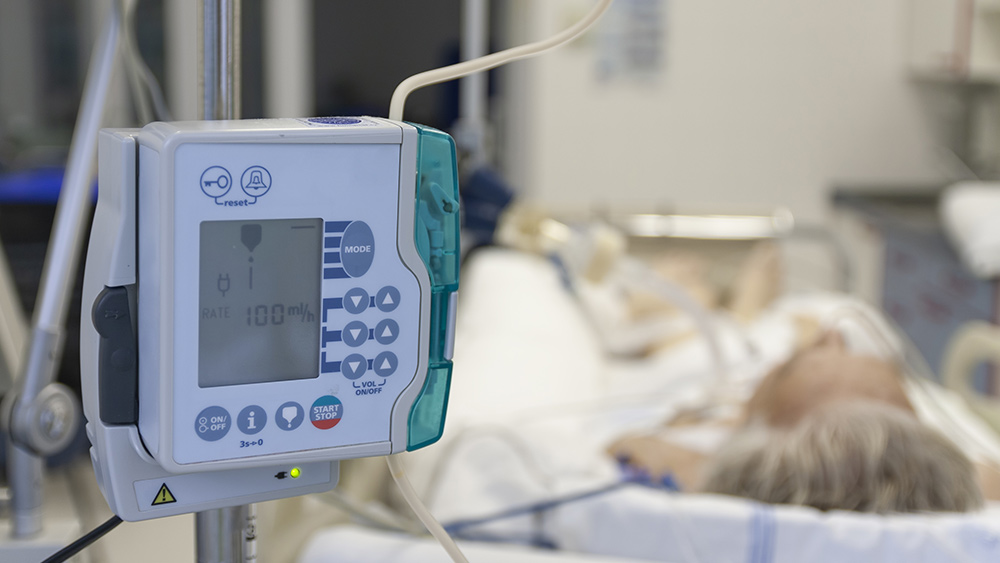Hospital bills add to the problems of coronavirus patients
09/11/2021 / By Ramon Tomey

A number of people who survive a bout of Wuhan coronavirus (COVID-19) infection experience symptoms that affect them in the long term. However, sky-high hospital bills for COVID-19 treatments only make things worse for them. While some health insurance companies cover the cost of treatments for the disease, some hospitals have not followed these policies. COVID-19 patients are then left to foot the bill as a result.
The New York Times (NYT) talked to a number of patients who medically recovered from COVID-19 but still suffer financially. These three patients are just some of many others who saw both their health and finances negatively impacted by the Wuhan coronavirus.
Shubham Chandra
Shubham Chandra left his well-paying stint at a New York City startup after his cardiologist father passed away from COVID-19 last fall. He monitored the more than 450 bills accumulated during his father’s seven-month hospitalization using an Excel spreadsheet. These hospital bills taken together amounted to more than $1 million. For months, he has spent 10 to 20 hours a week to work through the charges – reading through new bills in the morning and calling insurers and hospitals in the afternoon.
Chandra’s spreadsheet recently showed 97 bills potentially amounting to more than $400,000 that health insurance providers rejected. He told NYT: “A large part of my life is thinking about these bills. It can become an impediment to my day-to-day [life.] It’s hard to sleep when you have hundreds of thousands of dollars in outstanding debts.”
Rebecca Gale
Rebecca Gale lost Michael, her husband of 25 years, to COVID-19 last summer. While their insurance covered most of her husband’s medical bills, it only paid a small fraction of the air ambulance bill he incurred. Michael needed an air ambulance to transport him to different hospitals – with the service costing $50,000. The family’s health insurance plan established a $10,000 limit for air ambulance coverage, which left air ambulance provider PHI Medical to pursue the remaining amount from his estate.
Rebecca retired last year from her job stamping car parts at an Ohio automotive factory. But after her husband died and the hospital bills arrived, she considered looking for a part-time job to pay the charges. “I cry every day. [This] is just another thing that breaks my heart. [On] top of losing my husband, I have to deal with this,” she said.
Irena Schulz
Retired biologist Irena Schulz fell ill with COVID-19 last summer, but eventually recovered. The South Carolina resident still experiences multiple side effects – such as kidney pain and hearing problems – even though her bout with the disease was over. Schulz availed of hearing aids to help with the resulting hearing loss, expecting health insurance to cover them. However, she recently received a $5,400 bill for the hearing aids.
Because of the potential costs, she has avoided visiting the emergency room at the first sign of sickness. She manages her kidney pain by herself with painkillers, pineapple juice and water — until she feels she can afford a specialist. Schulz said: “If the pain gets past a certain threshold, I’ll see a doctor. We’re retired … [and] on a fixed income, and there are only so many things you can accumulate on the credit card.”
Lack of federal coverage, insurers withdrawing treatment waivers make matters worse
During the pandemic’s early months, some health insurance companies offered to waive a number of fees for COVID-19 patients. But a Kaiser Health News report said these large health insurers quietly dropped these waivers as the pandemic progressed.
Anthem stopped waiving COVID-19 fees at the end of January 2021, while Aetna ended deductible-free in-patient treatment for the disease at the end of February. UnitedHealth meanwhile began rolling back COVID-19 treatment waivers back in the fall of last year. It dropped the waivers entirely by the end of March. (Related: Insurers say death from coronavirus vaccination will not impact life insurance payouts.)
Moreover, the federal government does not cover COVID-19 treatment costs in the same manner as tests and vaccines. To address this, U.S. Sen. Tina Smith (D-MN) sponsored a bill to make COVID-19 treatments free. According to her proposed legislation, COVID-19 treatments for any Americans would be waived regardless of their health insurance situation.
Smith told NYT: “I’ve heard so many stories of people being completely stymied filling out reimbursement forms and trying to get insurance to cover them. It’s almost as if the [health insurance] system is designed to make it hard to get reimbursed.”
According to the lawmaker, Congress mandated insurers to make coronavirus testing free last spring. However, this mandate did not extend to treatment coverage partly because insurers were willing to waive patient costs. (Related: Trump administration releases plan to allow Medicare to cover cost of coronavirus vaccination.)
Visit Pandemic.news to read more stories about the long-term effects of COVID-19 on people’s health and finances.
Sources include:
Tagged Under: Collapse, covid-19 pandemic, federal coverage, finance, health care, health coverage, health insurance, health insurers, Hospitals, long-term symptoms, medical bills, medical coverage, medical treatments, treatment fee waivers, treatment fees, Wuhan coronavirus
RECENT NEWS & ARTICLES
COPYRIGHT © 2017 HEALTH COVERAGE NEWS




















